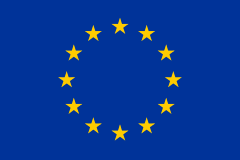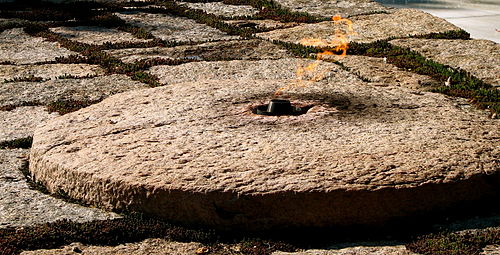Advent Sunday 1 (27 Nov 2011)
Homily of Fr. Paul Panaretos, S.J.
Toward Not Away
As you know, Christians live between two Advents: the first arrival in time and history of Messiah Jesus, son of God, born of Mary; and our Messiah’s glorious return at the end of time and history. We remember how Jesus was with us: how he proclaimed the reign of God, and how he urged his disciples then and us disciples now, Be watchful! Be alert!
Christian remembering is no mere recall of ancient relics or even to savor them if others don’t. Christian remembering, like its Jewish cousin, reaches into the past, fills the present moment and shapes the future. Christian remembering lives now because its power comes, not from us, but from Jesus’ Spirit. As Jesus said, the holy Spirit that the Father will send in my name...will be in you...will teach you everything and remind you of all that I told you [and] will guide you to all truth.1 Christian remembering keeps us on target as we live between the two advents of our Messiah Jesus.
Now 21st-Century Catholics begin this Advent with a third advent of sorts, the arrival of the latest translation of the Roman Missal, the book of prayers used to celebrate mass. The closer translation of the prayers reminds us that scripture is the source of our worship. I’d like us to consider one line from today’s opening prayer because it focuses us when the hustle and bustle of the next month distracts us: Grant [us], we pray, almighty God, the resolve to run forth to meet your Christ with righteous deeds at his coming, so that, gathered at his right hand, [we] may be worthy to possess the heavenly kingdom.
Running to meet the Messiah of God is about the future and how we prepare each present moment for our future. We are already in our Messiah, united to him by his Spirit. To meet the Messiah of God echoes what many in scripture desired and did: Zacchaeus wanted to meet Jesus but thought he would only get to see him at a distance;2 some who didn’t speak Jesus’ language asked his disciple, Philip, to introduce them to Jesus;3 disciples of John the Baptizer wanted to spend time with Jesus;4 Jesus’ parable about the ten maidens who went out to meet the bridegroom.5 The church early applied the title of bridegroom to Jesus, so to ready ourselves to meet the bridegroom is wise for all Christians.
Running was a favored image of St. Paul.6 Sprinters and cross-country runners as well as joggers of all varieties know that running takes effort, discipline and regular practice. Our Christian practice is to desire to meet Jesus and to be alert when Jesus meets
us in a person or in an event. Our Christian practice exterior as well as interior: we aim to live our faith, hope and love with righteous deeds, that is, virtuous, upright, faithful, compassionate actions. Scripture described God with a word we translate as righteous. To run forth with...righteous deeds is to behave in ways which will allow Jesus to recognize us as his disciples.
While the prize of eternal redemption7 awaits us faithful disciples in our future with God, our present is equally important. Our godly, com-passionate, Christian actions awaken others to Jesus meeting them; allow others to meet Jesus for the first time; school us to depend on Jesus in our daily living; and our godly, compassionate, Christian actions enlarge the church, the community of God-with-us, which proclaims God is faithful, for us and for the sake of our world in each present moment as well in the future, when time will be no more, and God will be all in all.8
So give Jesus 15 minutes each day this week.
- Pause and be aware that you take each breath because Trinity faithfully creates you each moment.
- Ask the disciples, the first to meet Jesus, to present you to him.
- Praise Jesus for embodying God in human flesh, bone and emotion.
- Ask Jesus for the grace to run the Christian life in an eager, self-effacing way: that is, to walk the gospel way.
- Close saying slowly the Lord’s Prayer. Jesus gave us his words as our guide to be alert, ready to welcome him when he returns in glory.
____________
- John 14.17, 26; 16.13.
- Luke 19.1-10.
- John 12.21.
- John 1.37-39.
- Matthew 25.1-13, the gospel selection early this month.
- 1Corinthians 9:24-26; Galatians 2:2; 5:7; Philippians 2.16; 3.14. Paul also knew it did not depend solely on us; see Romans 9:16.
- Today’s Prayer Over the Offerings.
- 1Corinthians 15.28.
________________________________________________________________________
















